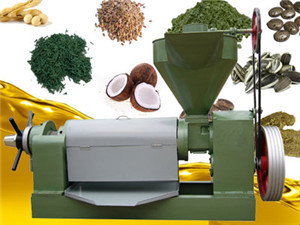
In the highly competitive global coconut oil market, ensuring safety and operational reliability in production lines has become a decisive factor for sustainable growth and business stability. Leading manufacturers are leveraging cutting-edge technology combined with rigorous management systems to safeguard processes from end to end—from coconut dehusking to refined oil packaging—while simultaneously driving efficiency and adhering to stringent environmental standards.
At the heart of safety assurance lies a convergence of intelligent monitoring systems that provide real-time data analytics and automated fault detection. These systems include high-resolution sensors and AI-powered preemptive alerts that identify abnormal machine behavior, overheating, or conveyor jams long before incidents escalate. For instance, equipment outfitted with smart vibration and temperature sensors can predict mechanical fatigue with over 90% accuracy, allowing maintenance teams to intervene proactively.
Complementing monitoring hardware, safety design principles embody multiple layers of mechanical and electrical safeguards: emergency stop modules, robust guarding around moving parts, and fail-safe shutoff valves. These features effectively mitigate risks during critical phases such as mechanical coconut shell removal and high-pressure oil extraction.

The coconut oil production process comprises several critical stages, each with unique safety considerations:
| Stage | Safety Risks | Mitigation Measures |
|---|---|---|
| Dehusking | Mechanical injuries from shell removal, dust inhalation | Enclosed mechanized dehusking units with dust extraction & emergency stops |
| Grinding | Moving part entanglement, overheating | Automatic temperature control and safety interlocks |
| Oil Pressing | High pressure hazards, mechanical jams | Pressure sensors, overload protection, remote monitoring |
| Filtration & Refining | Chemical exposure, fire risk | Closed-loop filtration, explosion-proof equipment |
Embedding sustainability into production lines not only reduces environmental impact but also elevates operational safety. Renewable energy sources such as solar power supplement energy-intensive equipment, reducing carbon footprints and minimizing volatile emissions that could pose fire or health hazards. Energy-efficient motors and variable frequency drives lower heat generation and optimize workload distribution, promoting equipment longevity.
For example, implementing waste biomass boilers for process heat recovery converts agricultural residues into clean energy, ensuring a safer operating environment while lowering energy costs by approximately 25%. These initiatives position the coconut oil production framework at the forefront of green transformation, aligning with evolving global regulations and customer expectations.

Reliability-centered design and predictive maintenance strategies dramatically reduce downtime, enhancing output stability critical for meeting large-scale order demands. Data collected from automated diagnostics informs maintenance scheduling, reducing unexpected failures by up to 40%. Furthermore, modular equipment architecture enables swift component replacements, thereby minimizing production interruption.
Through these innovations, the overall equipment effectiveness (OEE) in coconut oil plants can regularly exceed 92%, reflecting industry-best performance benchmarks. Reducing unplanned stoppages not only safeguards worker safety by preventing emergency interventions but also enhances product quality by maintaining steady processing conditions.
A recent installation of a vertically integrated coconut oil production system in Southeast Asia demonstrated tangible benefits within the first twelve months. Automated monitoring reduced mechanical failures by 35%, while integrated filtration and refining units achieved a 20% reduction in energy consumption compared to traditional setups. These upgrades contributed to a significant competitive edge, enabling the facility to fulfill premium contracts demanding strict compliance with international food safety and environmental standards.

In an era where supply chain transparency and operational excellence influence purchasing decisions, partners seek manufacturers who prioritize high-efficiency, safe production aligned with ecological responsibility. Investing in advanced safety systems and reliable equipment ensures minimal risk exposure and guarantees product consistency critical for brand trust. This symbiosis between technology and management excellence empowers businesses to meet the rising demand for sustainably sourced coconut oil products worldwide.
Empower your business with cutting-edge coconut oil production lines — high-efficiency and safety guaranteed to support steady growth and green transformation.

